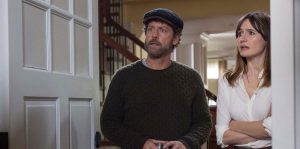
I have always been impressed by the career trajectory of Greg Kinnear. I remember as a youngster watching him as the very first host of Talk Soup, then on NBC’s Later and then as I became a teenager, he started acting in so many different movies, many of which I’ve seen in the theater. There is something inherently likable and trustworthy about Kinnear that I sincerely hoped wasn’t just an act. Thankfully I can say after talking to him about his directorial debut, Phil, it wasn’t. Or he’s just a REALLY good actor, but I digress.
Phil is a philosophical, light-hearted dark comedy, if that seems to not make sense, it will after you watch the film. Kinnear leads a star-studded cast in a goofy adventure of a dentist named Phil in disguise as a Greek man named Spiros, all for the sake of finding out why his one-time patient, who seemed to have it all, committed suicide. It is hilarious and heartfelt, just like the man himself, who I was lucky enough to speak with on the phone a while back.
The first thing I thought when I found out that you were directing a film, period—before I even watched it—is how long have you wanted to direct?
Kinnear: I would say over the last 15 years. I had kind of bumped up against the idea for a while. I just never connected with the beats very much and this piece was given to me by a producer named Sandy Stern. It had this very kind of unique tone to it…it was interesting to me. The fact that it had a life-affirming quality to it and yet it was framed against the backdrop of death was unique. I do not have a social media footprint, partially out of fear of what I would be missing out on, because I see people with these gadgets and everybody’s looking around at everyone else’s wonderful life. There’s so much wondrousness going on out there and it makes you question your own life. I thought that idea resonated with me. With Fisk (Bradley Whitford) there was this guy who seemed to have everything to live for. Of course, our lives are not made up of images or these kinds of quick glimpses that we get of people. They’re not necessarily accurate and that being a send-off for Phil to kind of go on this—basically a mystery he’s trying to solve, it was funny in a response to the characters. That was basically the incarnation, I guess.
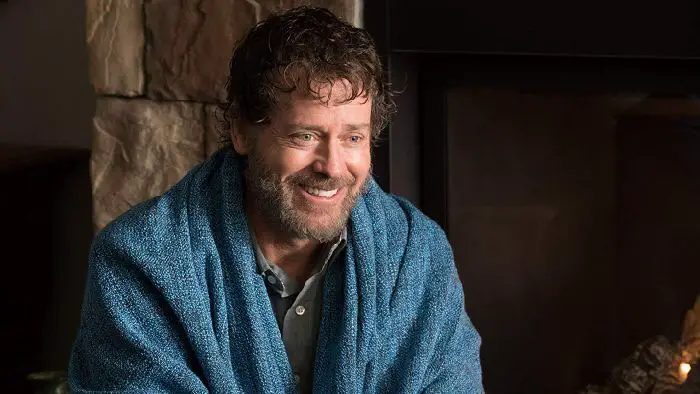
“I do not have a social media footprint, partially out of fear of what I would be missing out on…”
Yeah. I was thinking about that when I was watching it. At a certain point, I was like, “This seems like a metaphor for how social media affects people.” I picked up on that and I think it’s very timely. Also, I feel like that’s existed before social media, but the “grass is always greener” thing is a really good subject matter to go with. So I enjoyed that.
Yeah. We’re all quite taken with it (social media) right now—it’s almost an obsession with the lives around us. Obviously, it was really tricky because it was really funny stuff and Steve (Stephen Mazur, screenwriter) was really good. I mean, originally the character (that Kinnear’s character Phil plays while around Fisk’s widow) was not Spiros. The guy’s name is Thomas Jennings and he’s Scottish. I don’t do a Scottish accent, but Greece, I grew up over there and in fact, my best friend’s father was a Spiros. There were elements that he (Stephen Mazur) let me get involved in (with the writing). The scripting process, that was really tricky because suicide is just something that I’ve indirectly seen in my life and I certainly had friends of people who it’s happened to…it’s not very unusual. It’s more common than car accidents they say, sadly. I really wanted to be respectful to somebody who had ever brushed up against that issue. So you can’t do a raucous comedy, but at the same time, there is that comedic element to it. So I was trying to tiptoe through that world and allow for a resolution that had a little bit of hope to it. Because I was quite taken with Steven’s script from the get-go feeling like, “Wow, there’s a little piece of hope at the end of this”, which is kind of incredible.
Personally, how do you relate to Phil?
That’s a good question. I mean, there are so many great actors who I would have chosen to have not been burdened with both acting and directing in this, which SPOILER ALERT is a lot of work. I didn’t think casting me in it was putting a square peg into a round hole. I have probably a little more optimism than Phil. Well, when I find myself looking around the world, I feel I’ve always felt a little out of place in Hollywood. I do find some element of the guys looking around and seeing all these fabulous other people. There is some element of that. Look, I’m incredibly appreciative of everything I’ve had in my career, but I didn’t come from an element of that. I think I’m a little bit of an outsider. I think also—I was never going to be a philosophy major in college, but pondering the big questions of why and how is something I’ve always done. I think Phil had been grasping at straws, clearly.
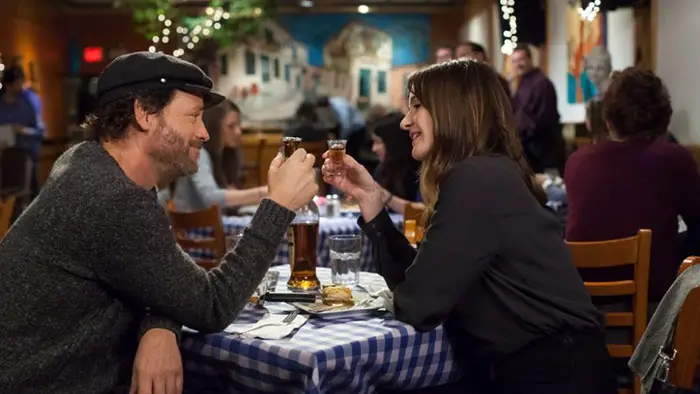
“…I was trying to tiptoe through that world and allow for a resolution that had a little bit of hope…”
You were just talking about how it was hard to direct and act but what I was wondering, how it is to direct other people and also yourself. What is that like, especially coming from being an actor and having somebody else do the directing?
Well, it’s great from a logistical standpoint, you know, this was a small movie made in a short amount of time with a lot of very busy, successful actors. So logistically putting this sort of schedule together is very difficult and I always knew that I could just grab that Greg Kinnear by the hair and drag him into any day you need to schedule. I could just slap that guy upside the head in there. If you have to work a 20 hour day in order to facilitate Emily Mortimer and Luke Wilson’s schedule so they could get back to whatever they were doing, I could make that happen. So there was a logistical thing that was very helpful. That was a real value.
As far as the creative side, we have a wonderful crew and some very good actors that I felt comfortable around. John Bailey was my director, the cinematographer, who actually shot me in As Good As It Gets. I had known him and that was helpful to have that voice there. You have your people there, but at the end of the day, I think what helped me most creatively was just the preparation. We were toying around with the script for roughly a year before we shot. So I felt like when I went into any of the scenes, I had a pretty good idea of what I was going for. Now, obviously, things changed and there were some massively unexpected events that took place while we were making it, and on those days you just have to dig deep into your instincts and try and do the math. We would set the shot up. Then we touched the shot up with the actors and reversed it. I had a very good stand-in that would basically just mimic my actions as I’m reading it offside and I’d be able to come to the side and watch the camera moves…and then we’d go shoot it. It was an imperfect process. It was at times very schizophrenic…a headbangers ball. Generally, we’d get through every day and I’d have a margarita.
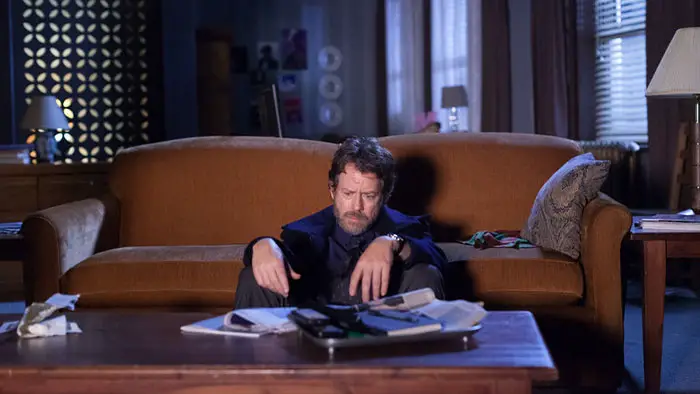
“…what helped me most creatively was just the preparation.”
Did you have any input on the casting? You are great and the rest of the cast is incredible too. You got Emily Mortimer, Luke Wilson, you got a Duplass brother! (Jay, to be clear) So people are going to want to watch it. I’m just wondering how the casting process went.
The casting was really—just the luck of the stars. We got Emily Mortimer early on, who I adore. I’d never worked with her and I didn’t really know her, but she said yes. As I said, the other pieces just came together nicely. I had seen Jay’s fantastic work. I thought he brings such real honesty and integrity to all of his work, so he would just be fun to play off as my brother. Even though we don’t really look physically like brothers, but my brothers don’t look at all like me, either. So I thought whatever. He looks like my son more than my brother. Luke Wilson is an old friend and was nice enough to jump in for a while. Kurt Fuller, I had worked with him in Auto Focus, where he played Colonel Klink, and I always thought that he’s a great actor. Obviously, Taylor Schilling is great. The best thing I can say is that we just kinda got everybody we wanted. We also got some very good local hires. The girl who plays Rahel; April Cameron, she’s fantastic. She’d never done a movie before. I love her. Her timing and her voice are lovely. So there were some really nice local folks that joined us as well…but casting is weird. I mean that was a real strange experience for me as an actor, I am always on the receiving end. I’m never in the room where people are talking about me and saying, “We don’t want him.” So I didn’t like the idea of anyone not being included in this. I didn’t like the idea of not being a champion of each and every person. I think generally we kind of ended up getting who we wanted and that worked out really well.
You said you did a lot of collaboration on the script for Phil and I was just wondering if you ever wanted the opportunity to make another movie, would you ever consider writing a screenplay and directing it?
Yeah, I would. I’ve written a few things and as I said Stephen Mazur was nice enough to let me kind of work with him on this a little bit. But I don’t know, it’s incredible. I’m a utility player. I can come in and I think I’m pretty good at helping. I guess I have a kind of micro view. I can see scenes and adjustments that I think can be helpful. But what an incredible job, to be a screenwriter. What’s so remarkable about those guys is their kind of macro ability to take the full story, the full-blooded idea and taking all the way through to the end. It’s hard to do that. There are a couple of things I’ve been working on over the years. So who knows. I just literally finished this, and it was a lot of work so I think I’ll just go off and be an actor for a while.
This is just something that I ask everybody…I know that you kind of started out in journalism, broadcasting, and stuff like that, but was there ever a particular film, television show, etc. that made you think “Oh, I want to work in the movies” versus hosting a show or anything like that?
I grew up in Greece and in these little back alleys there was an awesome projected lit up area, kind of a park. That wall on it had these little—this is ages ago, sorry to say—but they would have these little outdoor cafes around Athens and they would play movies. You know, I saw a lot of films that way and it’s just kind of a very odd environment to be exposed to movies. I guess I saw quite a few movies and I don’t know, it’s hard for me to say if there was a specific film while I was over there. I was always interested at a young age in performing in some capacity. I had a radio show in Athens as a kid. It was a weekly one-hour thing that I did. That was an interesting early exposure. There were a couple of great drama teachers—and as you would imagine in Greece, a bit of a thriving drama department in my little high school. So those elements I think played a part in my interest in it. But listen, I didn’t know anybody in show business, so I wasn’t so presumptuous to think, “Oh, I want to go to Hollywood and I’ll work in movies”. It just seems so absolutely ridiculous, so unattainable on every level. It all seemed too large to me so I dare not think those thoughts. I did have enough of an interest in all of that, that I found my way out to Los Angeles. I started doing marketing for a low budget movie company first. I just thought, well, maybe this is an idea, this’ll be a strange…I don’t know, maybe this will lead to something. Then, I think just by being in Los Angeles, it has opportunities that I wouldn’t have back east. So,I’ve definitely got a few really good breaks along the way.
FINAL THOUGHTS: I just wanted to say one more thing. Like what you were saying, I used to be a director of distribution at a small film company (TROMA) myself. So that’s really kind of inspiring to talk to someone who didn’t have some uncle that got them into the business, you know what I mean? Because at some point I hope to write a screenplay and do all this stuff. So, thank you for talking to me about all of that. I hope that everybody likes the movie as much as I did. It’s great!

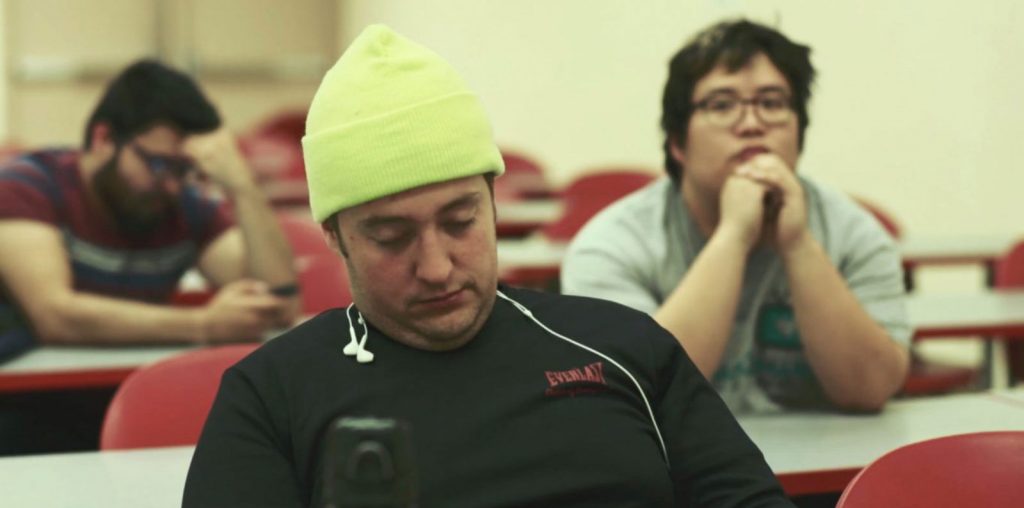
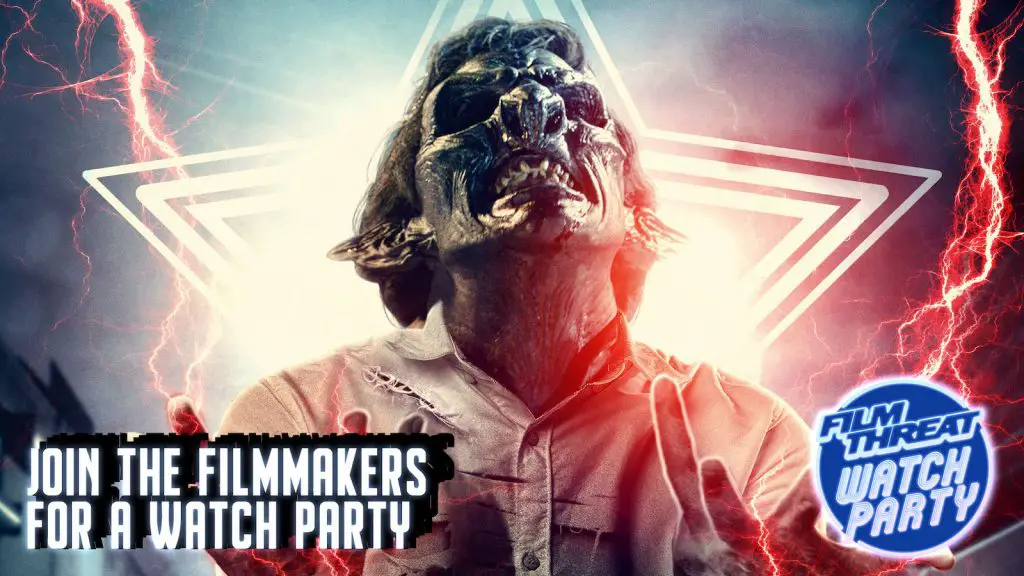
Did Phil have anything to do with Michaels suicide or was that a secondary plot aside from Phil’s mid-life crisis? all in all I think it was a very believable film about someone’s mind and a crisis that becomes overwhelming at times and makes the character appear as if he was losing touch with reality!